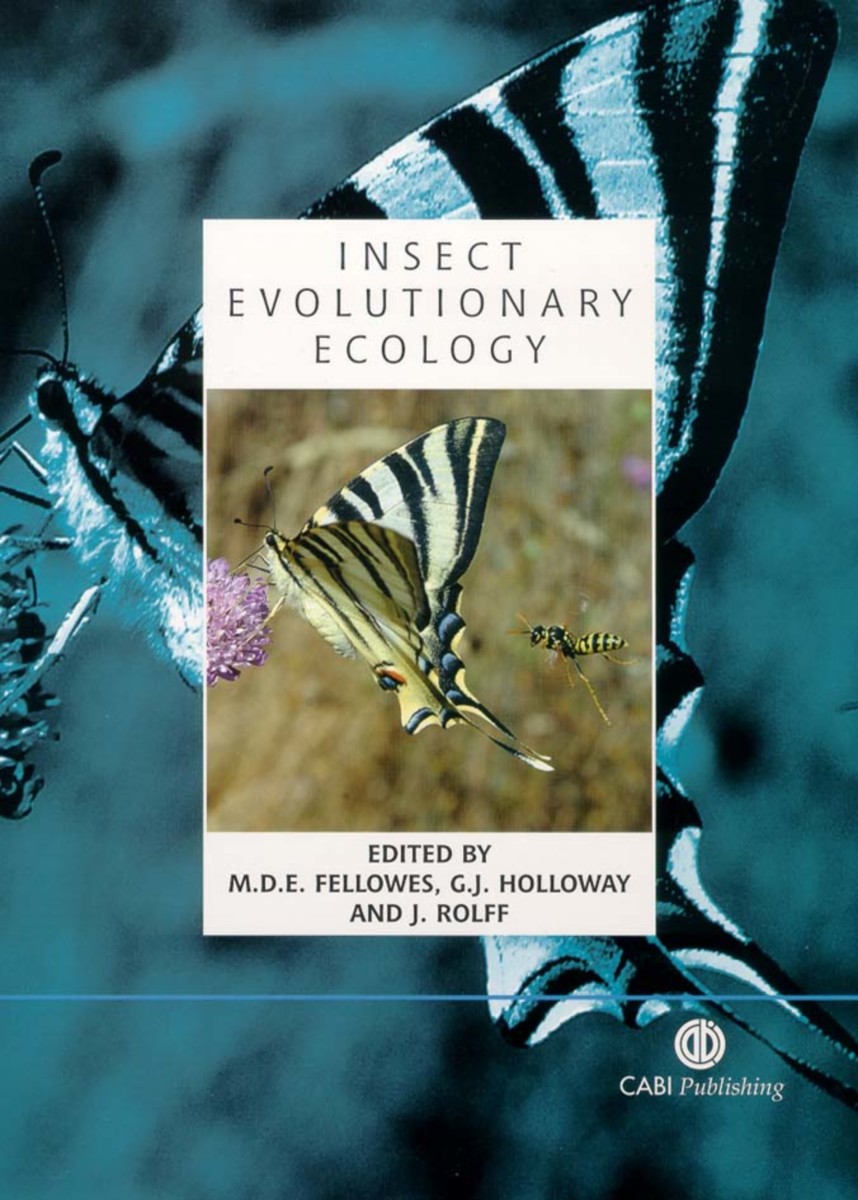Insect Evolutionary Ecology
- Publisher
CABI - Published
20th September 2005 - ISBN 9780851998121
- Language English
- Pages 448 pp.
- Size 6.875" x 9.75"
Insects provide excellent model systems for understanding evolutionary ecology. They are abundant, small and relatively easy to rear, and these traits facilitate both field and laboratory experiments. This book has been developed from the Royal Entomological Society's 22nd International Symposium, held in Reading in 2003. Topics include speciation and adaptation; life history, phenotype plasticity and genetics; sexual selection and reproductive biology; insect-plant interactions; insect-natural enemy interactions and social insects.
"This volume provides a comprehensive overview of case studies in evolutionary ecology, containing a wealth of up-to-date information. The chapters are well-written, and the scientific quality is very high throughout. Its content should be interesting for many entomologists, ecologists and evolutionary biologists; it is definitely a book for the libraries of all institutions. Personally I will use this book for scientific as well as teaching purposes."
- Basic and Applied Ecology
"Not every wide ranging book is interesting enough to be read in its entirety by a person generally interested in evolutionary biology, but this one is."
- European Journal of Entomology
* Genetics, Relatedness and Social Behaviour in Insect Societies
* Do Insect Sexual Ornaments Demonstrate Heightened Condition-Dependance?
* Sperm Competition in Butterflies and Moths
* Alternative Mating Tactics and Fatal Fighting in Male Fig Wasps
* Life Histories and Parasite Pressure Across the Major Groups of Social Insects
* Cascading Effects of Plant Genetic Variation on Herbivore Communities
* The Role of Insect Reproduction in the Diversification of Insect Reproductive Processes
* The Evolution of Imperfect Mimicry
* Evolutionary Ecology of Insect Host-Parasite Interactions: and Ecological Immunology Perspective
* Adaptive Plasticity in Response to Predators in Dragonfly Larvae and Other Aquatic Insects
* The Peppered Moth: Decline of a Darwinian Disciple
* Insecticide Resistance in the Mosquito Culex Pipiens: Towards an Understanding of the Evolution of Ace Genes
* Molecular and Ecological Differentiation of Species Interactions Across Large Geographic Regions: California and the Pacific Northwest
* The Genetic Basis of Speciation in a Grasshopper Hybrid Zone
* Assortative Mating and Speciation as Pleiotropic Effects of Ecological Adaptation: Examples in Moths and Butterflies
* Evolutionary Changes In Expanding Butterfly Populations
* Specialisations and Host Associations of Social Parasites of Ants


